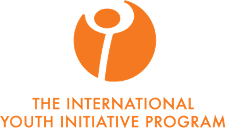After months of preparation, finally the day arrived where the different groups set off to their various Internship locations. Mostly filled with excitement and some healthy nerves, the Yippies left Ytterjärna behind to embark on their adventure.
Right after the Yippies flew off, the birds decided to fly back south, escaping the late layer of snow that made it difficult for them to find enough to eat. Thousands of overflying geese shared the strong message that we had to dampen our spring jitters just a little longer…
As a substantial layer of snow settled again in Ytterjärna, the YIP team worked on the curriculum design for YIP16. Taking in the feedback from the current group, we spent time reflecting on the year and the curriculum. Together with Naomi Richards and Leonora Meier-Nielsen who will be part of the new Organising Team for YIP16, we designed an exciting curriculum for YIP16, which we look forward to sharing with you over the coming weeks on our social media account!
Now that the Yippies have all safely returned from their adventures, they brought with them the sun and a warmer breeze. Buds are growing on the trees and we’re enjoying our first wild greens in our salads. In the mornings we are woken up by the sound of birds singing and rays of sunlight shining in our faces. Birds and frisbees fly through the blue sky. I almost don’t dare to say it but… I think spring is finally here…
This newsletter will take you from Nepal to Bulgaria and from Egypt to Zimbabwe. Nine different Internship groups share their experience of working with an organization that creates positive change in their various fields. I hope you’ll enjoy the ride!
Warmly,
Tessa
In this newsletter you will find:
– Elderberries 3Fold Cafe, USA – written by David Adámek
– Hebat el Nile, Egypt – written by Amber Lee
– Holy Green Agrofarm, Nepal – written by Linus Shastri and Yander Fabri
– Kufunda, Zimbabwe – written by Soetkin Galle
– MOVI, Lithuania – written by Sève Berrier
– Navdanya, India – written by Iona Temple
– Satang Diabang, Senegal – written by Katharina Wirth
– Sustainability Institute, South-Africa – written by Billy Mills
– TaM, Bulgaria – written by Nell Lenoir
Elderberries 3Fold Cafe – USA
– with David, Katie and Kaya –
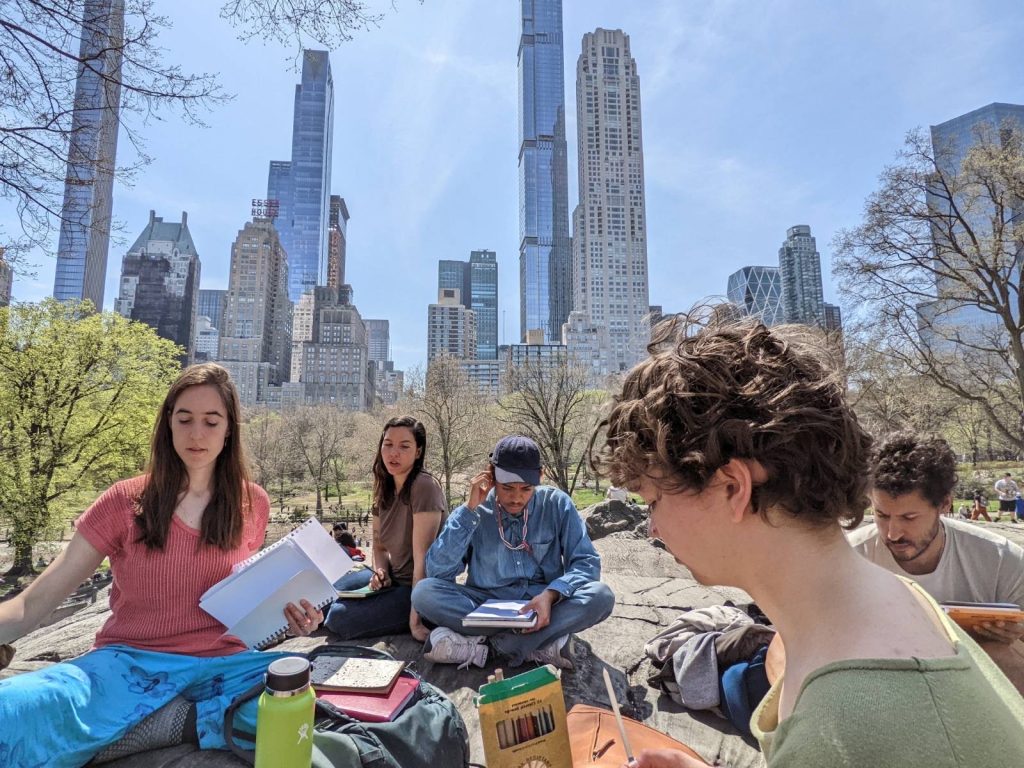
We, the Berries (David, Kaya and Katie) went for our internship to Elderberries, a social justice café in the USA. Due to the fact that Elderberries wasn’t based in any city at the moment, a big part of our internship was traveling. So, for our internship we went to Chicago, Wisconsin, Detroit, Upstate New York, NYC and Vermont.
We spent the first ten days in Chicago, helping Elderberries with planning art classes for Thresholds, a school for Children in the foster-care-system, which means that the children don’t live with their parents. In those art classes, Elderberries invited us to step in and follow our passions. We wrote stories with the class and performed small theater pieces. After the ten days in Chicago, we stayed for a few days in Wisconsin, at the farm of one of our host’s (Zuri’s) parents, to reflect on our time in Chicago. From there, we moved to Detroit for a week, where we visited local initiatives and had time to do some research work for Elderberries. From Detroit, we went to Upstate New York, where we met up with the band in which our host Frank’s sister played. We followed the band to Vermont, where we helped them to set up their performance. We stayed in Vermont for two days and then went on to NYC to celebrate Zuri’s birthday. After spending two days in NYC, we woke up at 4 am to drive from NYC to Chicago. We arrived in Chicago after 15 hours of driving and we helped again the next day in the art classes with the Threshold youths. We flew back to a sunny Sweden the day after.
In total, we drove 3,600 km in three weeks. On our way, we met many different initiatives and friends of Elderberries who all took us in with great kindness, we had lots of beautiful conversations and learned a lot about America.
We are very thankful to our hosts Zuri and Frank, who were very welcoming and always looked out for us, to implement our interests in our work with Elderberries.
by David Adámek
Hebat el Nile – Egypt
– with Amber, Dowon, Farranika and Il-Hwan –
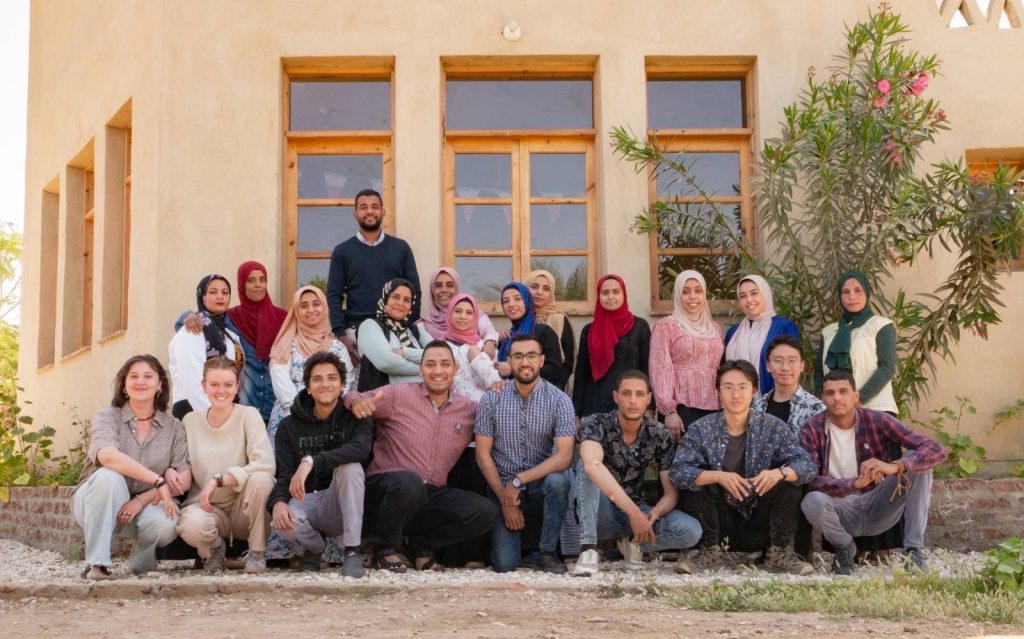
Farranika, Dowon, Il-Hwan and I travelled to Hebat el Nile – an incredible Waldorf-inspired school in Al-Bairat, on the West Bank of Luxor, Egypt. Hebat El Nile School – the second Waldorf-inspired elementary school, after SEKEM – is a public school that implements Waldorf philosophy and practices within the regulated government curriculum, aiming to provide a more holistic and balanced experience for its students. It was created in collaboration between the Hebat el Nile Foundation and the Egyptian Ministry of Education in 2016, with funding from the Erziehungskunst Foundation and also donations. Choosing to remain a public educational facility, and therefore also mostly free of charge, means that it provides an equal learning opportunity for both boys and girls in the area which is incredibly important as it makes quality education accessible to more children. It is also a great way for families who are interested in Waldorf education for their children to have easier access.
The majority of the teachers at Hebat el Nile have recently graduated from university and have not yet received a formal Waldorf teacher training as these resources are almost impossible to find in Arabic. This is one of the main reasons we decided on this internship location: to share our personal experiences of attending Waldorf schools from four different places around the globe. In the afternoons, after the school day was officially over, we held daily sessions with all of the teachers where we shared what it was like for each of us to be in a Waldorf school, why we learnt certain subjects at particular ages, why technology isn’t introduced until high school, the importance of artistic subjects such as music and watercolour painting, and how the Waldorf curriculum mirrors the life-journey of the child. We even taught the teachers some of the basics of bothmer gym and eurythmy, which was a lot of fun. This required a lot of frantic re-visiting, researching and speaking with some of our old class teachers. It was really motivating to see such young teachers so driven to make a positive impact in raising the quality of the education that these children at their school were receiving.
During the school day, we each attended classes, gave feedback to the teachers, taught some of the subjects and helped to draft the website for Hebat el Nile, which will hopefully be launched soon. We also held extracurricular activities in the evenings for the students where we played games, had martial art sessions and even a barbeque night. Spending time with the kids was really enjoyable and exciting, especially in the evenings when we could all run around the campus playing hide-and-seek in the dark!
In our free time we went on adventures together, which included hitchhiking to the Valley of the Kings, embarking across the Nile to explore the East Bank, having dinners with the teachers, attending traditional Egyptian festivals or meeting the most interesting, generous people on our walks into the town.
This new culture and life at the school was such an incredible experience that I would say really pushed us to grow and to step outside of our comfort zones. We are all so grateful for this internship and the warmth that we received from our host, the teachers, the students, the parents and also the friends we made.
Today, Hebat el Nile has almost 200 students, ranging from kindergarten to class six, with the intention for the first class seven to also begin in the beginning of the next school year. We feel honoured to have been a brief part of the Hebat el Nile community, and would like to share the details for donations, which will help the school to buy supplies such as paints, musical instruments, crayons, pencils and books, etc, as these resources are important in enabling the Waldorf approach to teaching.
If you feel inclined to donate to Hebat el Nile:
GLS bank
BAN (International Bank Account Number)
DE47430609670013042010
BIC (Bank Identifier Code)
GENODEMIGLS
Below you can find the introduction video to the school that Dowon created.
by Amber Lee
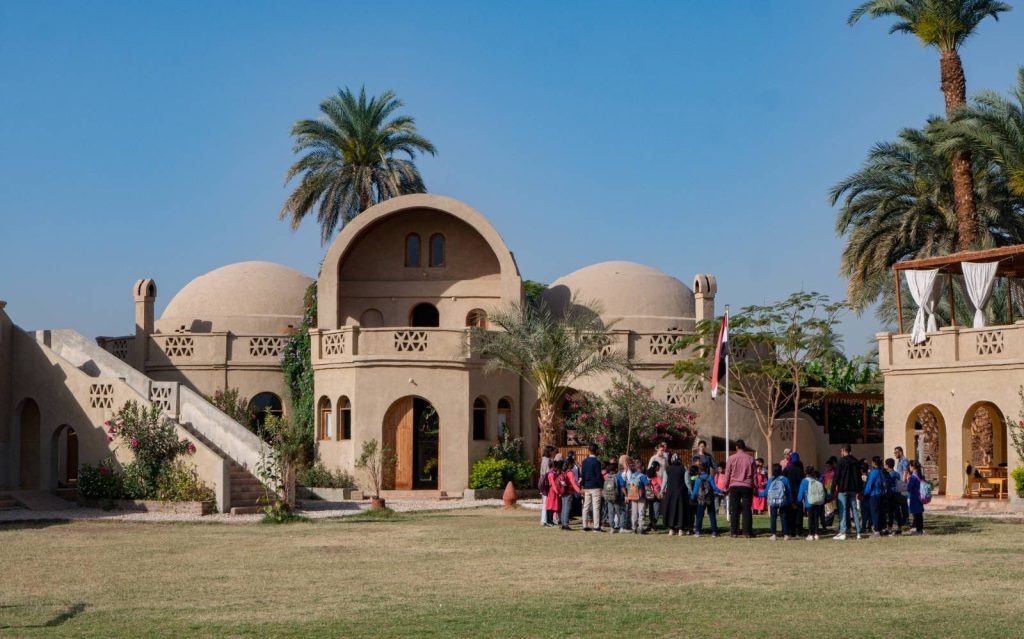
Holy Green Agrofarm – Nepal
– with Linus and Yander –
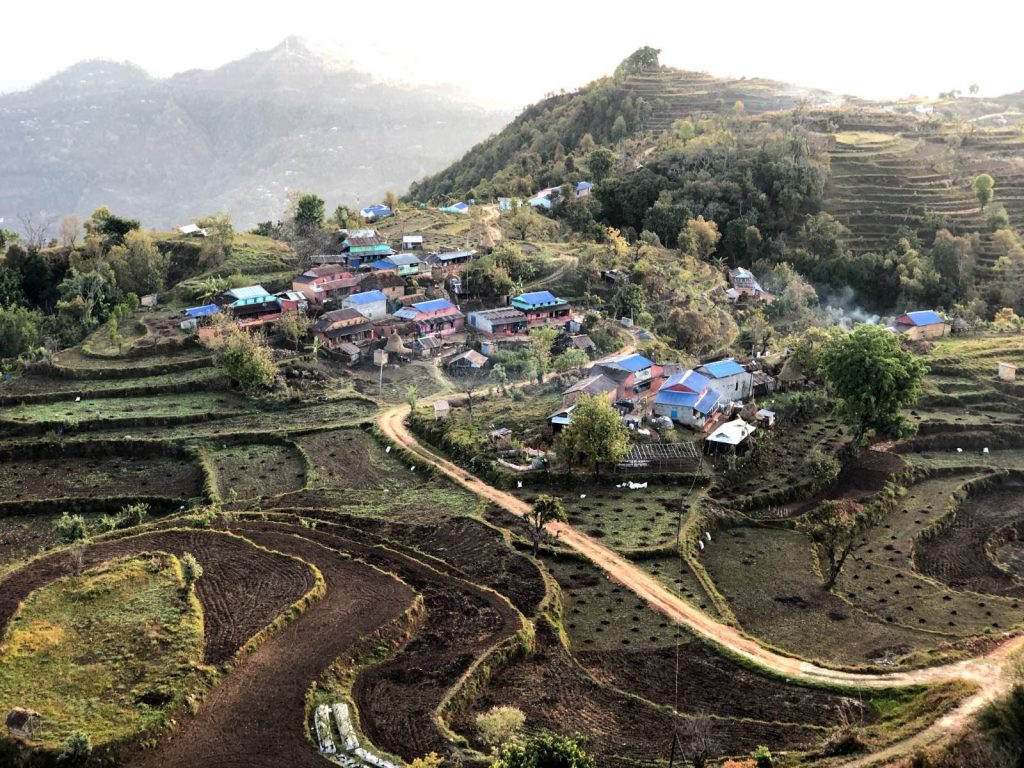
Hello everybody,
We are Yander and Linus and we have spent one month on the Holy Green Agro Farm in Nepal.
We decided to go to this internship to reconnect to nature and ourselves in a different way. Mahendra, the founder of the biodynamic farm, started his project because he discovered a need for healthy and nutritious food in Nepal. His farm is located on the hillside near Pokhara, from which you can see the big and beautiful Himalayas on the horizon.
We have been mainly working with the land, which included weeding, processing bamboo and supporting the plants to grow. The work gave room for many funny and fruitful conversations.
In addition to that, we spent our free time immersing ourselves in the Nepalese culture, roaming around the locality, cooking food and going on some touristic explorations.
We both had different experiences and learnings that would be too long to mention here, but we are very grateful for taking part in the daily life on the Holy Green Agro Farm. We hope to be back soon, to help expand the educational capacities of the farm.
Thank you for everyone helping us to make this experience possible! And thank you Mahendra, Vishnu and Subim for letting us be a part of your family!
by Linus Shastri and Yander Fabri
Kufunda Village – Zimbabwe
– with Elias, Johannes, Luna, Quinne and Soetkin –
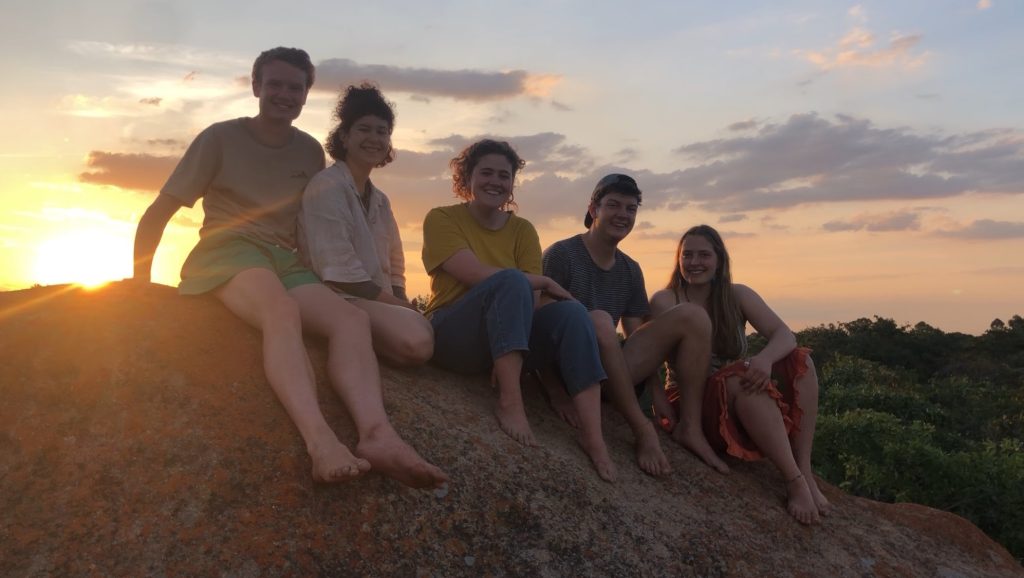
After a long, dark, cold Swedish winter I remember us walking out of the airport in Harare and a wave of heat and sunlight welcoming us. The very start couldn’t have been better. It was my first experience on non-European ground and I enjoyed every moment from our landing onward. Seeing the different trees and flowers, busy markets, sandy roads, the local people and thinking that I would be here for a whole month made me very happy and curious.
About an hour later (after we did our groceries) we found ourselves in Kufunda, a community and learning village in Zimbabwe. It’s funny to say ‘a’ village, since this place became way more than just ‘a’ village to me. There’s a Waldorf-inspired school, a biodynamic garden, a few families who live there, and workshops for youth and communities. We joined in for one of the workshops where we talked about money. I found it very enriching to hear the perspective of Zimbabwean youth on this topic.
My time was filled with meeting lots of wonderful people and being outside almost 24/7. Next to that I had a good amount of ‘first times’. Like eating a larva, driving in the open back of a pick-up car (on what we would call a highway), teaching in a school (even though I don’t have a certificate), eating sadza, organizing an easter-egg hunt, milking a cow by hand, drinking zumbani-tea (a plant that looks similar to mint, which they used to treat Covid), and much more.
We worked in the school where we brought lots of songs, games and creative things. We also learned to improvise and pick up on whatever was needed or wished for. One time the children took us to a nearby farm where we bought a whole bucket of sweet potato which we could eat for a full week. Some of us helped in the garden and I learned how to make a biodynamic compost. We made some trips to the very busy and intense fruit markets and went to Harare where Irvine from YIP6 showed us around.
Next to that, we also had wonderful moments in between where we hung out with the children or played football/volleyball. We could read and paint or walk around in the lush nature.
One of my favorite moments in the day were the evenings. We would cook with our small group of Yippies and talk about what we did during the day and what we learned, but also about life and the universe and random things. Shortly after we went to bed (around 8:30 or 9 pm which is very early for me), and I realized that it’s actually nice to be in bed early.
During this internship I could experience a new way of freedom and adventure. Very vibrant and close to nature. Every night while walking to the kitchen or the compost toilet I would look at the sky and see the moon getting fuller and fuller as the days went by. Once I was walking and noticed how I could hear the wind in the trees, people laughing and birds singing, but no highway or airplanes. Only sounds from nature. Isn’t that amazing?
Before, in Sweden, I was a little concerned about how it would be in Zimbabwe and the group I was with. We didn’t really hang out in YIP so I didn’t know what to expect. Luckily it turned out much better than any of us could’ve imagined. We’re all quite different, but maybe that is what made our group balanced.
Now, being back in Sweden, I miss the sense of ease that I felt in Kufunda, but also the surroundings. The sand was orange like the big rocks that looked like some giants put them randomly on the landscape. Almost every day around 5:30 pm we would climb the ‘sunset rock’ to enjoy the most amazing sunsets you can imagine (very orange and then purple and blue, green, yellow, pink, red, …), followed by stars popping up one after another.
This internship taught me some good things about myself and the world. Now I’m even more curious to see what’s out there on this big planet! I’m forever grateful for everyone that made this possible and hope to visit Kufunda again one day…
by Soetkin Galle
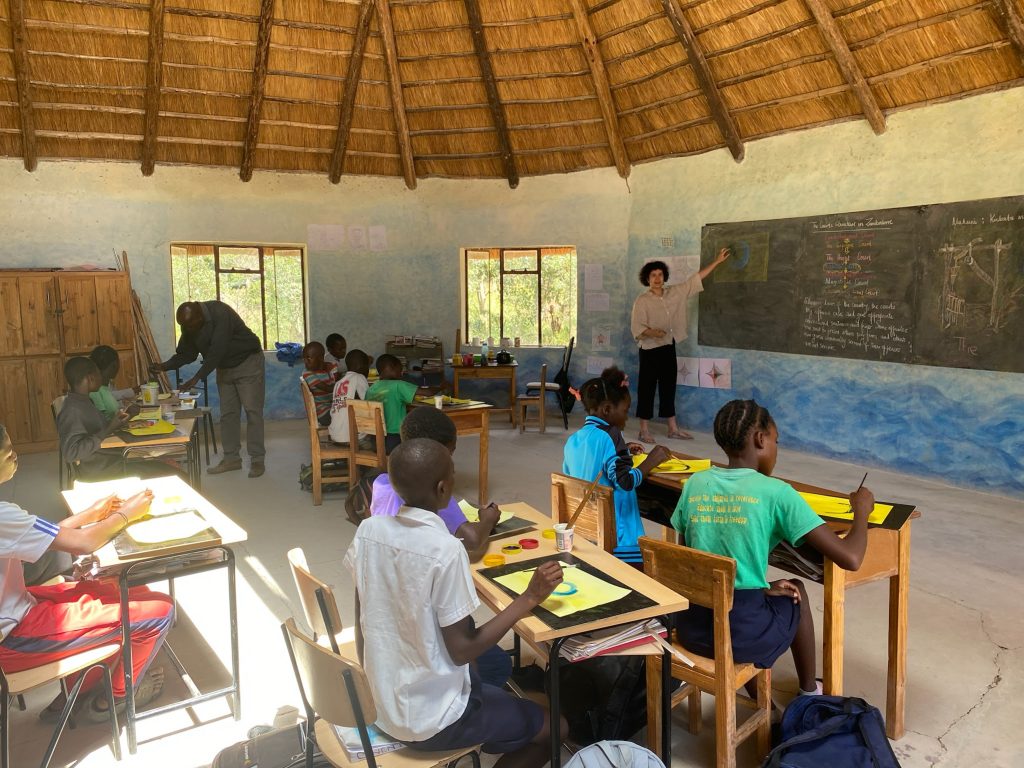
MOVI – Lithuania
– with Agustina, Miriam, Noam and Sève –
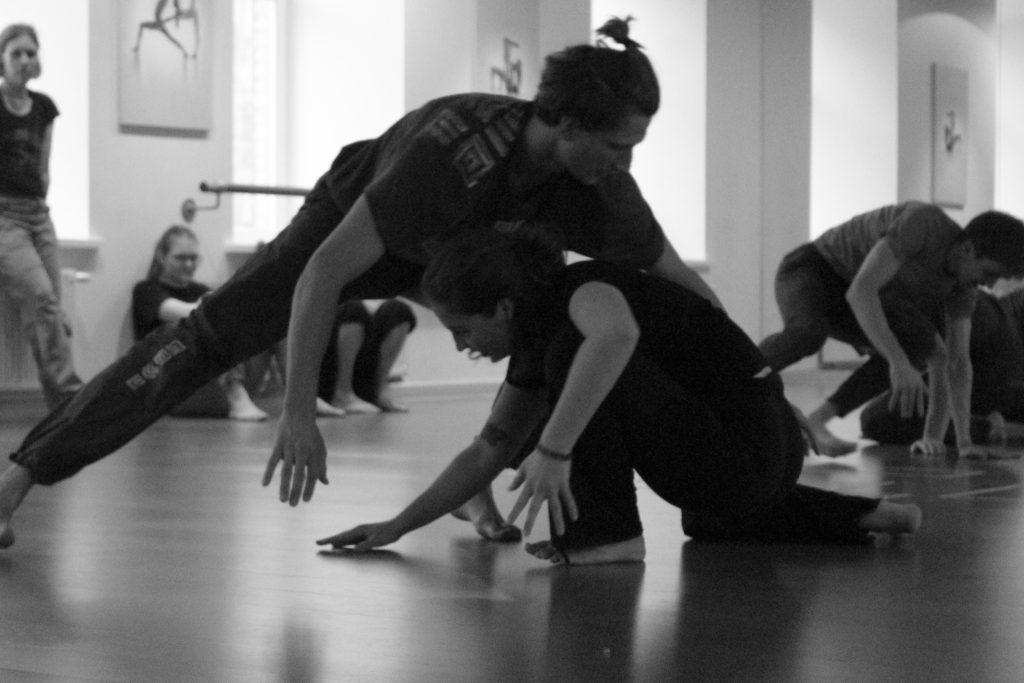
What I have begun to understand, by doing and researching movement this past month, is that for one to grasp what movement means, one must first empty their mind and body of any preconceptions surrounding movement. Because once you dive in, there is an infinitely complex world of learning, only comparable to that of life.
Attending Movement Vilnius everyday for a month has allowed me to begin exploring this idea of complexity, opening my eyes to various external and internal realms of existence. While classes were spent moving in the studio, if observed consciously the class continued once out of the studio as well. With this lens of conscious observation, I began to write about how I felt, going in and coming out of classes. What first started out as looking for surface level mood and well-being improvements, quickly grew to finding connections all across the psychological field.
The first and most obvious observation was the mood betterment. While I may have entered the studio in a state of resistance and self condemnation, my exit would be with a smile and a “joie de vivre” that I hadn’t felt in a long time. I also found an increase in my mental clarity, allowing for thought organization and rationalization, which led to wonderful conversations with others, where I felt I could communicate clearly and simply. I found if a conversation surrounded abstract concepts and ideas my ability to grasp them and further the conversation was also greatly increased. While these observations are rather general improvements. I began to look for specific exercises and concepts, seeing how they affect me and how I can integrate them in my exploration of life. For example, an exercise I found incredibly profound was one where a partner would stand in Mountain pose whilst the other would attempt to hang on them perpetually off balance in different positions. I entered this exercise very anxious and resistant. However, by diving into the discomfort, I discovered a process of immense trust and beauty. With each new partner I felt more confident and self aware as opposed to self conscious. This ever changing interpersonal conversation, created not through words but through mutual trust and intense awareness of the present, was truly beautiful to undergo. Especially with the experience of different people, as the conversation was never the same.
Going beyond physicality, the idea of sequentiality surfaces. Slowing down into perpetual movement, to practice the process of change in time. Through sequentiality we find discovery, we begin to explore philosophy, human mental expansion, growth. However, the idea of sequentiality as with everything explored in movement is in turn directly connected to the physical realm as well. Along with the practice of slowing down, observing sequentiality in our own body helps to bring awareness to individual body parts, how they work, which ones are stronger or weaker, and how to incorporate them all. Which raises a view of the body as one organism, connected in mind, body and spirit. While at Movement Vilnius, we develop our movement, but the emphasis is on developing through movement. I could go on forever on specific exercises and my experiences, for the complexity surrounding movement is absolute. There is no lack of places to explore through movement, and I find that incredibly beautiful, and most importantly needed in our world today.
by Sève Berrier
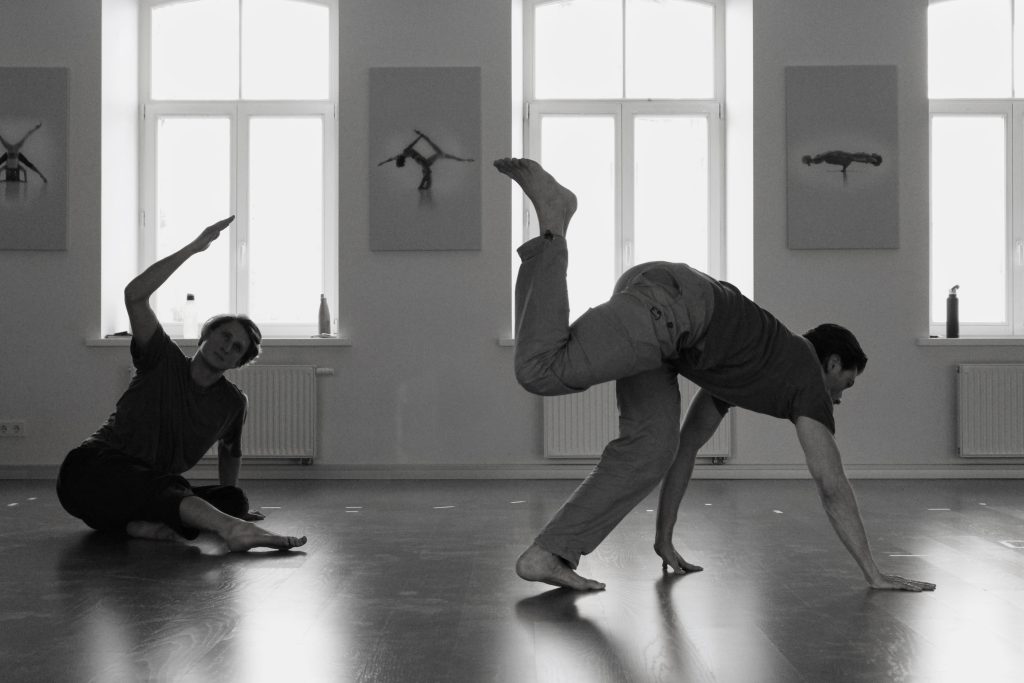
Navdanya Biodiversity Farm – India
– with Ellie, Fynn, Iona, Kenzie, Leila and Peter –
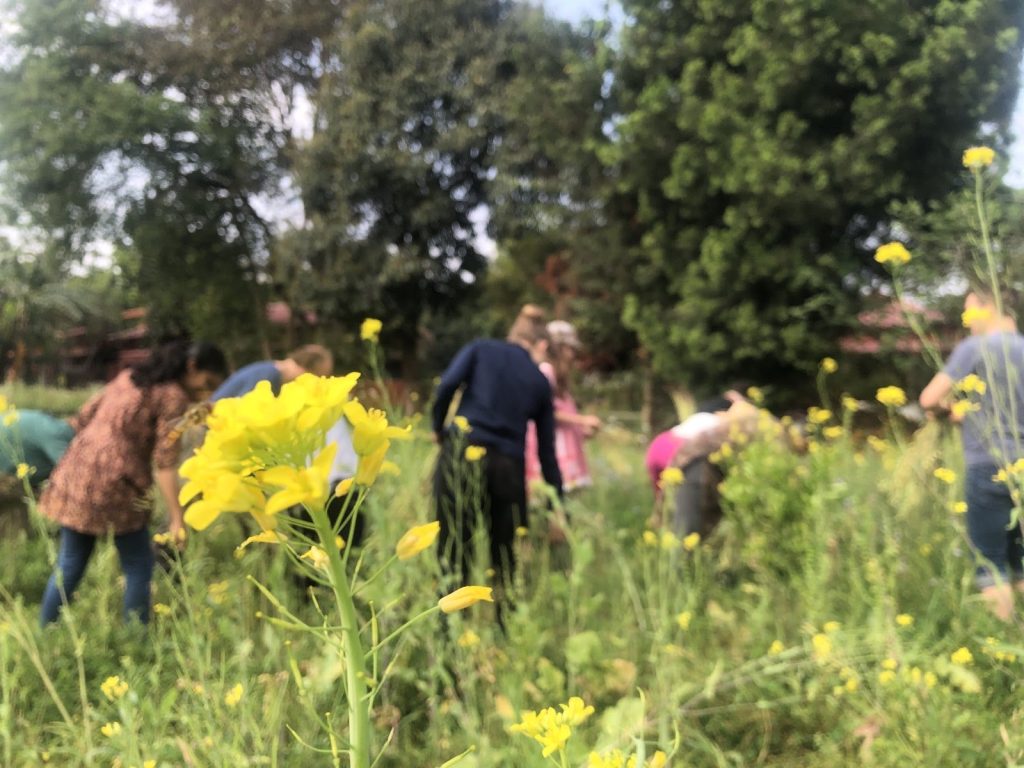
A month at Navdanya goes both slowly and quickly. A breakfast bell rings at eight in the morning and we slowly make our way to a spread of fruit, a savory millet dish, beans, and chai. We watch the sun climb above the fields as we eat and chat in our sleepy stupor. After shramdaan, where we clean the common spaces, we drift around or read before the fieldwork starts.
In the fields we work with Bindu Ji and Sheila Ji, harvesting mustard and radish seeds, taking a break in the cool shade, drinking water and then walking over to find steaming chai waiting for us. Our chai breaks are mandatory and leisurely, and we enjoy them before returning to the hot sunny fields.
On other days, we work with Pritam Ji in the chamomile garden, finding ourselves in day dreams of fragrant flowers, lulled by Pretam’s wagee wagee wagee (good work, good work). The enforced chai breaks pull us out of our idyllic dreaming.
After lunch we have lots of free time to sit under the shade of the blossoming mango trees, to nap, to dive into our art projects, or to keep reading one of our many books from the round library.
After our long lunch break, we make our way back to the dining hall where we dive into our paintings and research projects about millet. So many varieties: finger millet, barnyard millet, sorghum, pearl millet, and more. We are helping Navdanya with their project to educate and resist the corporate agenda waiting to co opt millet, as they’ve done in the past with quinoa.
On Mondays, we learn about the many medicinal plants that are grown around Navdanya. Pavna Ji walks us around the campus, familiarizing us with the different plants and their uses.
Before dinner we have more time for ourselves where we wander around the fields, breathing in the cooling air and watching the sun drop below the horizon. After dinner, we play kaboo, a new favorite card game, and drink tea until the darkness calls us to our rooms for reading by candlelight.
On the weekends we visit Dehradun, Rishikesh, Mussoorie, Dhanolti, and Dharwal Goan where we explore restaurants and markets filled with colorful clothes and spices and make our way to mountain towns where we dip into the blue water of the Ganges, close to the source. The other weekends we are in courses with Vandana Shiva, where we talk about the interconnectedness of the world, the importance of seed saving, the resilience of communities, and the power of biodiversity.
And in between all of it, we find ourselves in conversation with the farmers and everyone else who works there, with the other bijaks (the volunteers known as the sowers of the seeds) and the guests who come to attend the courses.
by Iona Temple
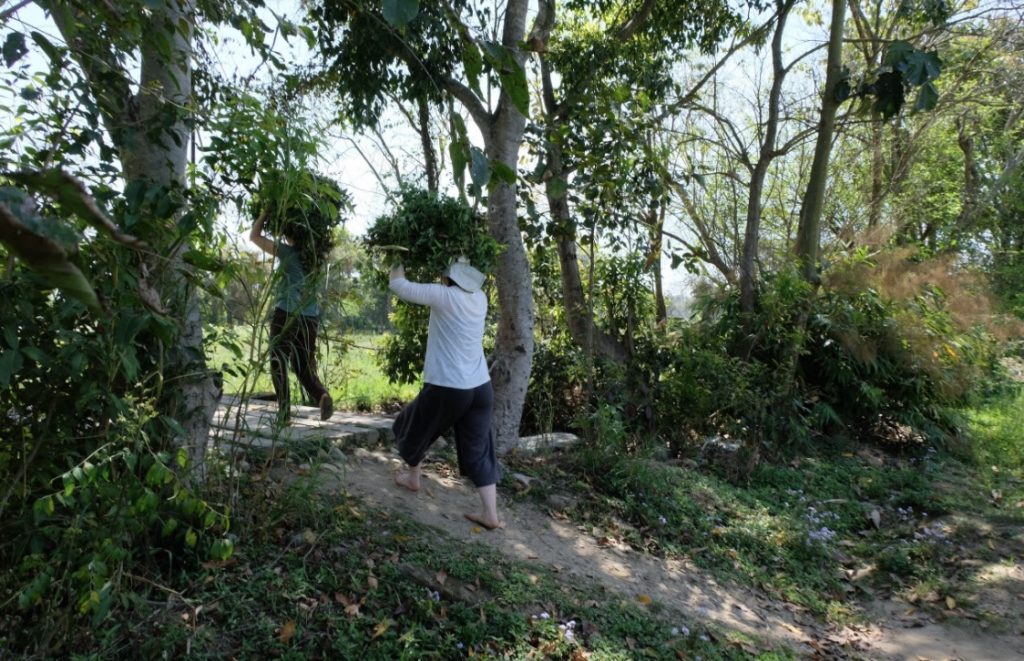
Satang Diabang – Senegal
– with Irene, Kathi, Lidewey, Soma and Tara –
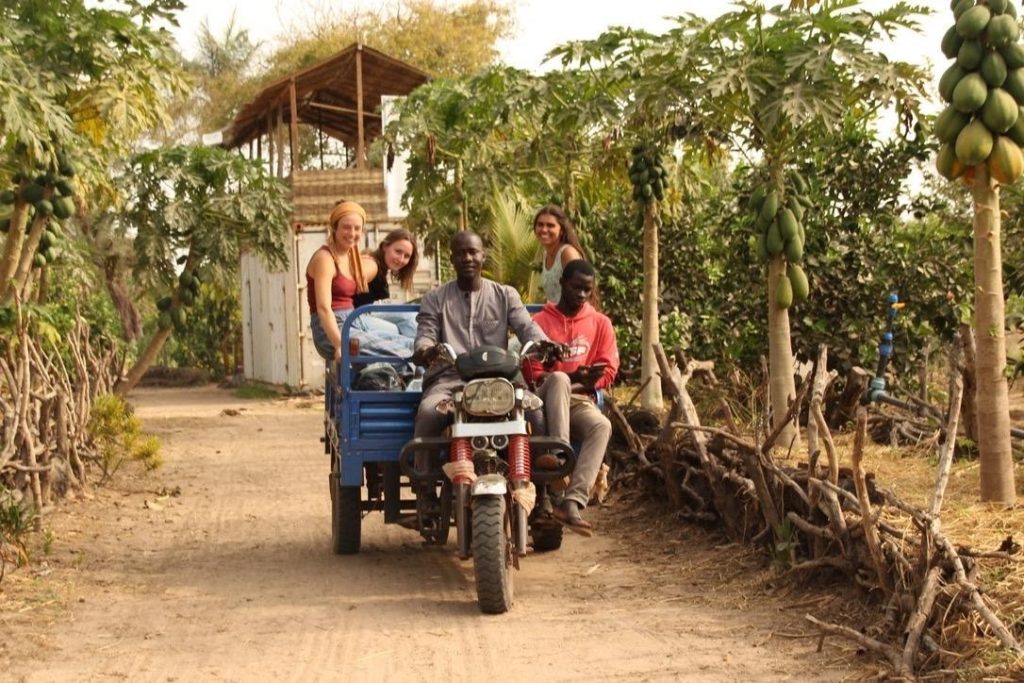
Lidewey, Tara, Irene, Soma and Kathi. Five drastically different Yippies together in Senegal for one month. Adventure, people, fish, culture (shock), impressions, papaya, noises, life, sun, (…), experience!
When Elisabeth told us about a School for girls called “Satang Diabang” in a town on the west coast of Senegal called “Kafountine” all of us were immediately intrigued. With a shared interest in experiencing a new culture and very diverse personal guiding questions, Kafountine seemed like the perfect place to go to on internship. Kafountine is located right by the Atlantic Ocean and surrounded by rivers. Traditionally a fishing village, Kafountine has grown a lot during the past years and is now home to more than 30.000 people.
Satang Diabang is a social school for girls, meaning that they only have to pay a very low fee in order to offer them a more independent future. The principal and the two main coordinators of the school welcomed us with warm hearts and open arms (just as anyone else we met in Senegal!!!) and between us we split up and got to stay with their families. It was a truly unique and amazing experience to stay in a host family because we really got to dive into the culture and experience it from the inside. This was especially prominent during our internship as we got to experience Ramadan along with most of the village.
The plan was to be in the school for most of our stay, and doing things like being part of the cooking class, the batik class, teaching English, and also having the opportunity to go to hospitals, Kindergartens, the Botanical Garden and the restaurant of the school. Well…the first week that was what we did and it was a great experience, especially because we got an insight in so many different settings… But then the school closed earlier than expected due to a decision by the government, and looking for somewhere to work for the rest of our internship we found ourselves at “Diamani Kouta – New Generation”.
Diamani Kouta is a rather new local cooperation with Austria that, in addition to a school and culture center, also has a social garden where local women can have a piece of land to grow their veggies. The garden also grows veggies that are sold to the local community. This is where most of us ended up for the rest of our internship.
In the garden of Diamani Kouta, we were warmly welcomed by the people working there. It is a truly amazing place, a paradise on earth, very well taken care of and we felt very good and connected to everyone around. Their vision for the future is to create jobs for locals and organize voluntourism. With both ultimately creating a cultural exchange, an exchange of knowledge, to create bridges that will last for future generations.
In the garden we got to harvest vegetables, seed and plant new plants, and driven by the amazing work attitude of everyone, we helped with other things like beekeeping and turning the compost. In addition, we went to the market in the very early morning to sell our harvest.
A highlight was going fishing on the river in the traditional way. Riding a small truck on dirt roads, stopping at seemingly “random” places to meet people, learning about palm-coconut wine, dancing and singing together no matter what language, and of course catching fish, preparing it and afterwards enjoying it all together.
It really became an internship in life with all the opportunities it holds. One day Soma got the opportunity to go to a music studio and cooperate with a local artist. From that point on he enjoyed the freedom to discover more of this world.
Overall our stay in Senegal was very (color-) full, very intense and of course each one of us experienced it in our very own way. Still, all of us will carry these special impressions forward within our hearts.
by Katharina Wirth
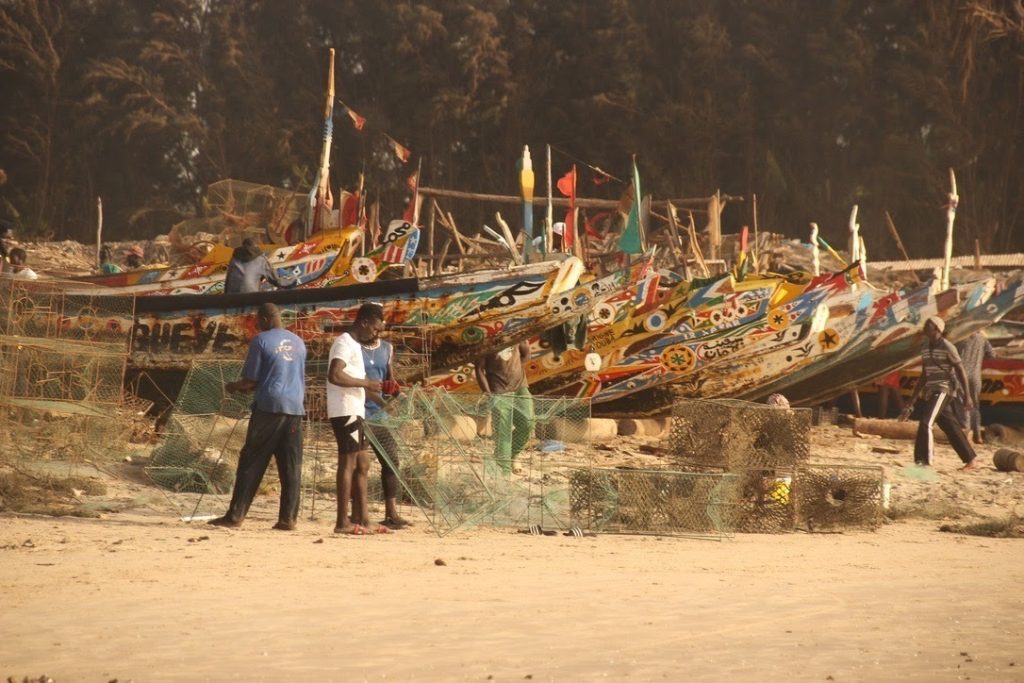
The Sustainability Institute – South Africa
– with Billy and Sunjoo –
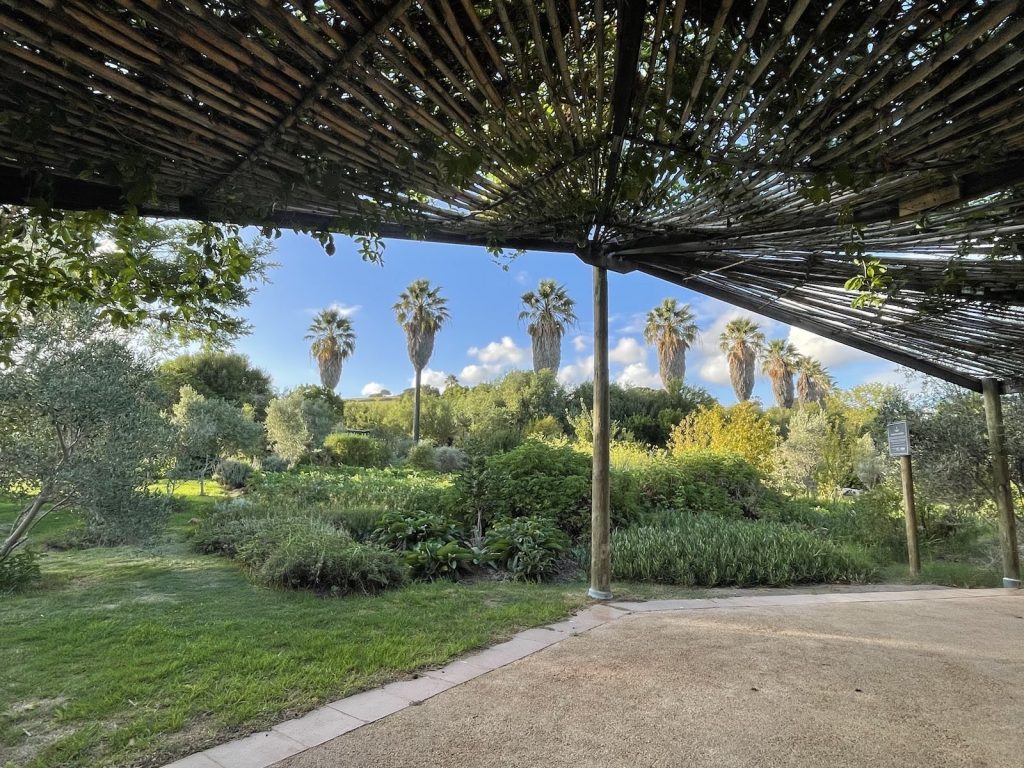
The Sustainability Institute is an organization that works with a lot of young people in the schooling style of Montessori and they have a sustainable garden on site. They are based in Lyndoch which is located near Cape Town in South Africa and share the campus with the local Eco village (where we lived), Healing By Nature, WWF and various other amazing initiatives.
I worked with the young people, more specifically the 12-15 years class. I have been blown away by the country, the culture, but mainly by the young people. They have a very challenging life forced on them with violence, poverty, inequality and various other social issues, but… They are all still so inviting, I couldn’t believe how quick they were to accept me into their class room. Not only this, but they wanted to learn! They wanted to achieve and make their lives the best they can be. Even in such adversity they kept fighting for a brighter future instead of just giving up where most in western society would probably fold. I hope to go back as soon as possible and live there for six months to a year and continue the work with their development.
by Billy Mills
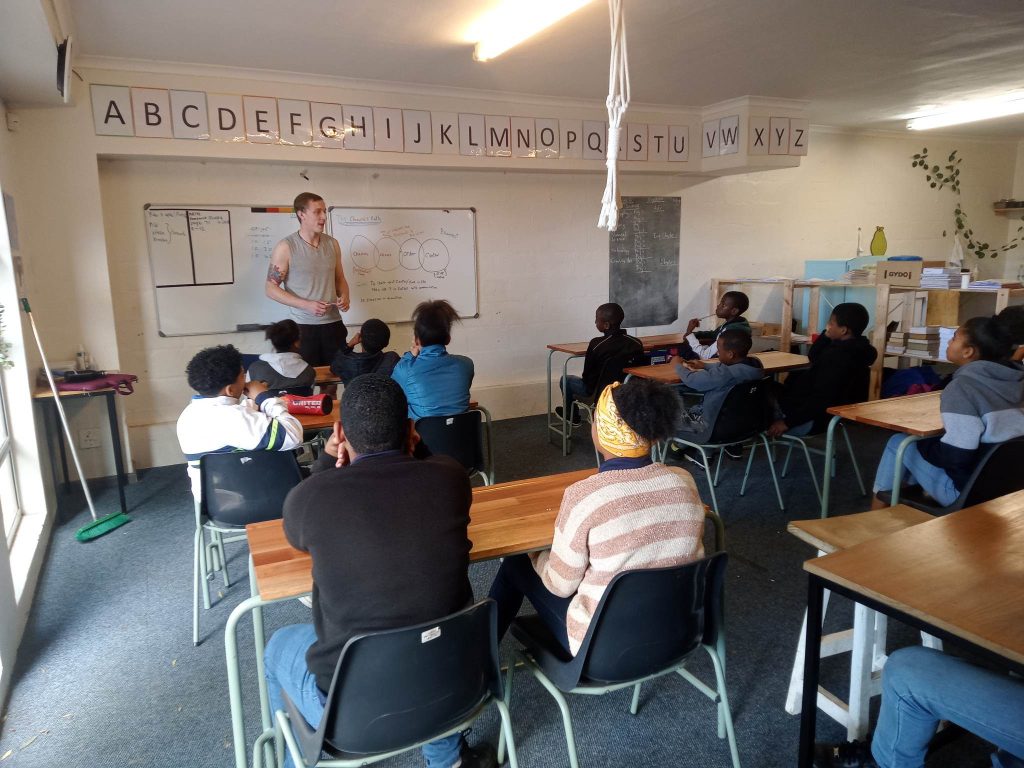
TaM – Bulgaria
– with Nell –
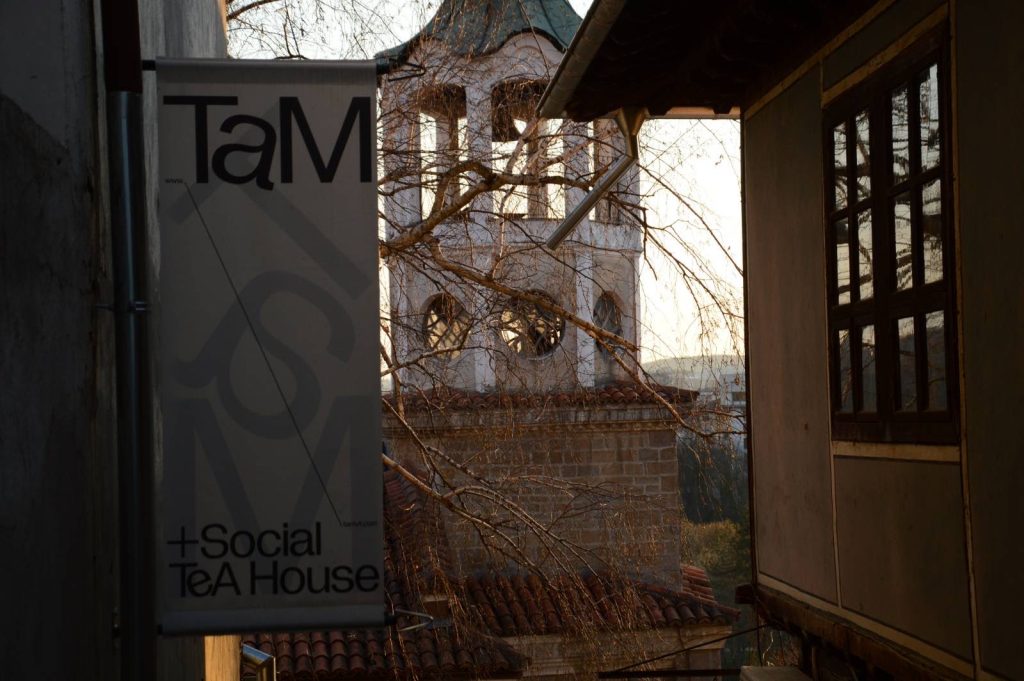
My internship journey took me to Bulgaria, in the former capital called Veliko Tărnovo. Spring had already taken hold of the city and was filled with colorful flowered trees, decorated by martenitsa. It is nicely located at the foot of the mountains – thus my surprise when my gps told me that I had a half an hour walk on a “mostly flat” path from my flat to TaM. There is a saying in Tărnovo that when one asks the direction to a place, the inhabitants never answer to go left or right, but instead to go up or down (the stairs). I finally counted how many stairs there were from my place to the city center: 550.
My journey to TaM started a little more than seven years ago. I was 17 years old and was living in Bulgaria. I met two Bulgarian girls on a train ride back to the town of Veliko Tărnovo. It is these two nice souls that led my path to TaM.
TaM is an independent project that started as a bar and event space about 10 years ago. It has grown its cultural scene and venue as well as its role in community building over the past few years. It is a place for people to meet and experience art in its many shapes and forms. It is very well-recognized on a national and international scale. And to not overlook, is that most of the events at TaM are free of charge.
I could tell a lot of stories about my experience in Bulgaria. Yet today, it seems like I’m missing the words. Words.
Bulgarian is an interesting language. And as much as I had learned the basics, I soon realized that to work in a community, with a community, it is more than important to really be able to communicate in their mother tongue. Building community takes time and commitment. And yet, it has not prevented me from having the immense opportunity to meet many beautiful people during my stay there.
I wanted to capture both the challenge of the language barrier as well as the heartwarming feeling I got from the many Bulgarians I met, into a tangible creation, with the hope that the YIP community and beyond could share a little of my experience. You can watch the video here.
If you want to know more about TaM and support them in their project, check their page!
by Nell Lenoir
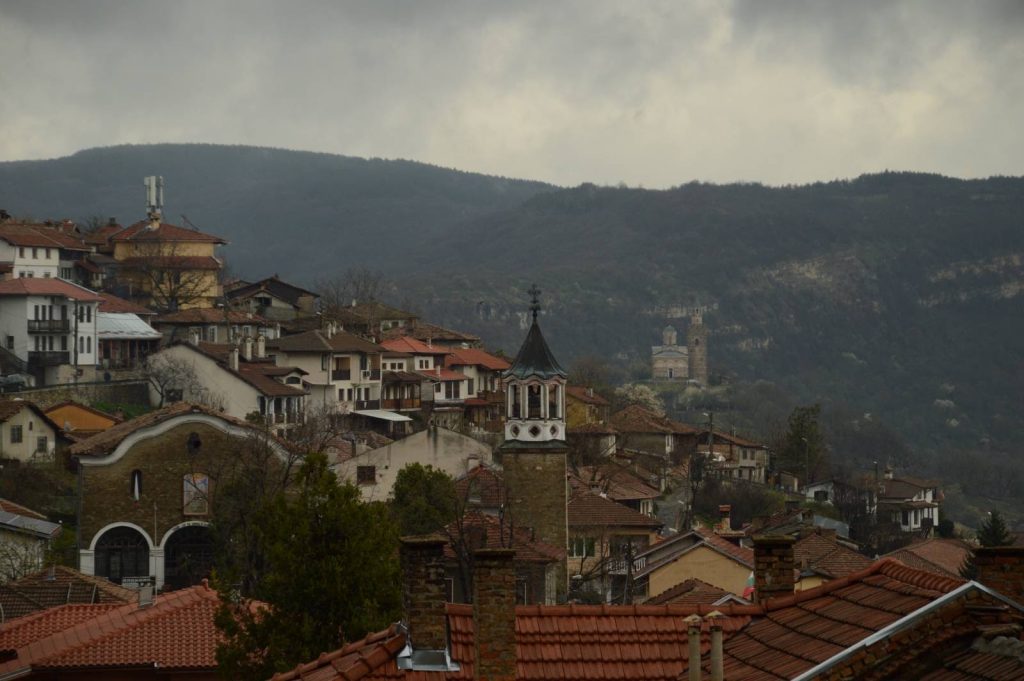
APPLY FOR YIP16

The applications for the 16th edition of YIP (August 2023 – June 2024) are open! It is very exciting to see your applications coming in.
A reminder for those in need of a VISA for Sweden, the application process can take 2-3 months, so we strongly enourage you to submit your YIP application as soon as possible!
We have scheduled another online LIVE CHAT if you would like to hear more about the program from an Organising Team member and ask your questions.
– Wednesday 10th May 19:00 CET
If you have any questions or would like the Zoom Link for the LIVE CHAT, please email [email protected]
We look forward to receiving your applications!
Warmly,
YIP Organising Team
In the Next Newsletter you will find:
– From Participant to Organiser – The Self Designed Curriculum
– Personal Initiatives
